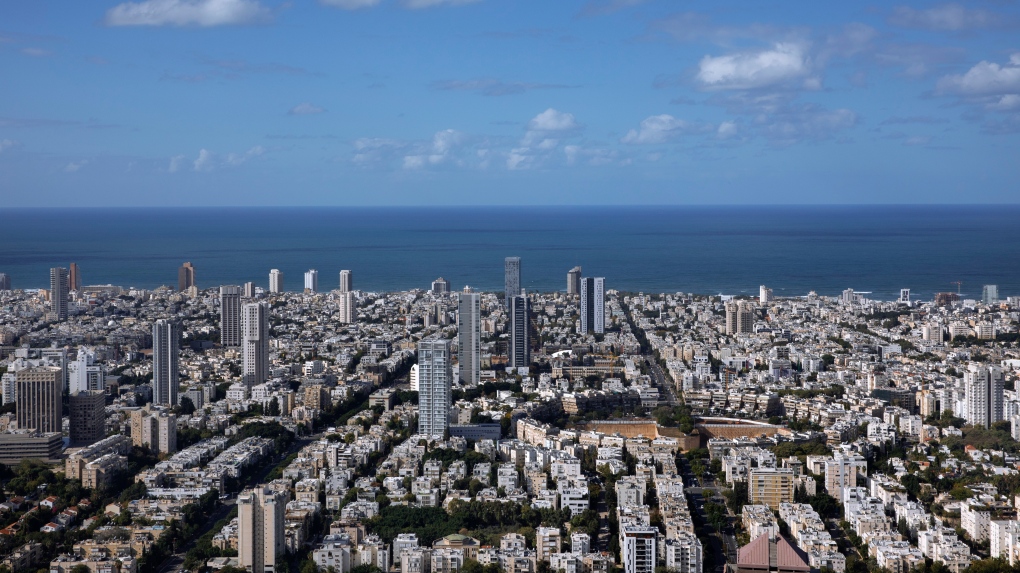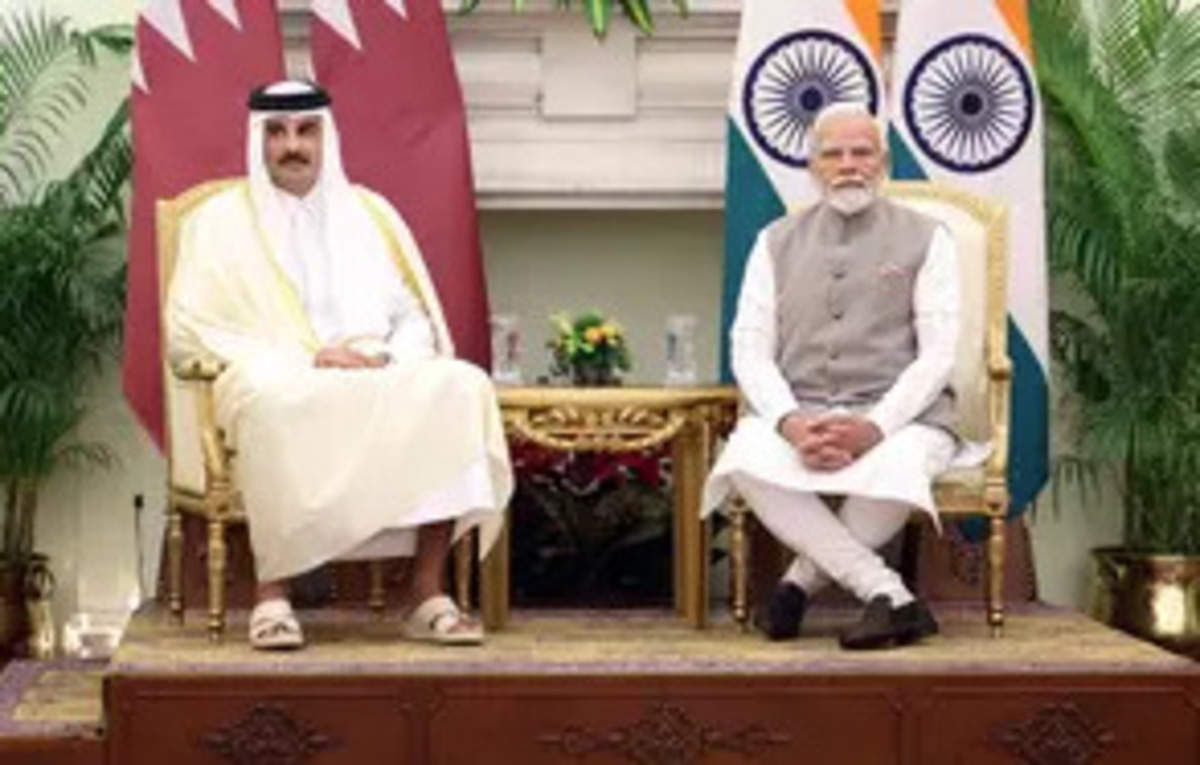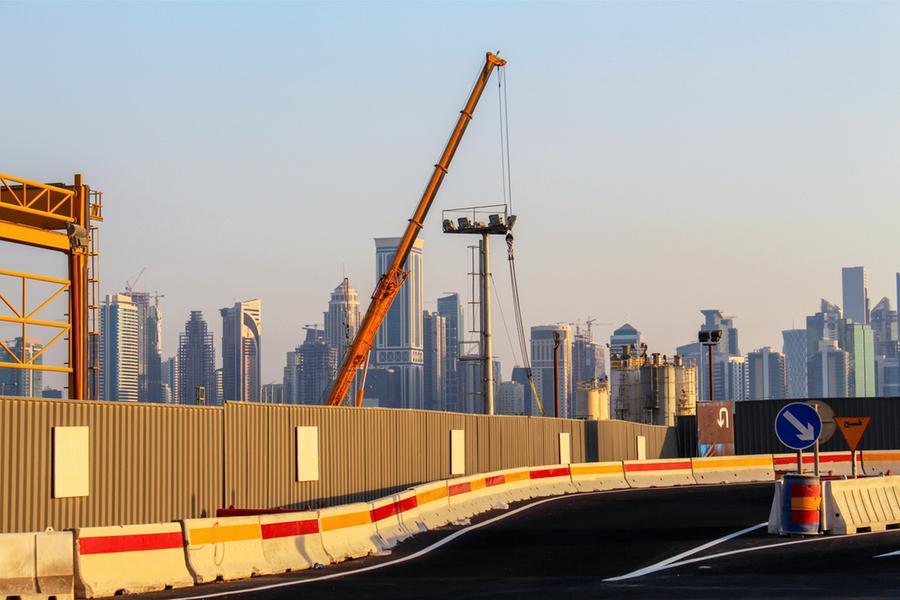Israel clears way to shutter Al Jazeera. Netanyahu says ‘terror channel’ airs incitement

JERUSALEM –
Israeli Prime Minister Benjamin Netanyahu on Monday vowed to shut down Al Jazeera’s operations in Israel, calling it a “terror channel” that spreads incitement, after parliament passed a law clearing the way for the closure.
Netanyahu’s pledge escalated Israel’s long-running feud against Al Jazeera but also threatened to heighten tensions with Qatar, which owns the channel, at a time when the Doha government is playing a key role in mediation efforts to halt the war in Gaza. Neither Qatar nor the broadcaster immediately commented.
Israel has long had a rocky relationship with Al Jazeera, accusing it of unfair bias against Israel. Relations took a major downturn nearly two years ago when Al Jazeera correspondent Shireen Abu Akleh was killed during an Israeli military raid in the occupied West Bank.
The Palestinian-American journalist was well-known across the Arab world for her critical coverage of Israel, and the channel accused Israel of intentionally killing her. Israel denied the charge, saying she was likely killed by Israeli fire in what appeared to be an accidental shooting.
Those relations further deteriorated following the outbreak of Israel’s war against Hamas on Oct. 7, when the militant group carried out a cross-border attack in southern Israel that killed 1,200 people and took 250 others hostage.
In December, an Israeli strike killed an Al Jazeera cameraman as he reported on the war in southern Gaza. The channel’s bureau chief in Gaza, Wael Dahdouh, was injured in the same attack.
The network also blamed Israel for killing Dahdouh’s son in a strike in January. Hamza Dahdouh was working for Al Jazeera when the strike hit a car he was traveling, it reported. The army later said that Hamza Dahdouh was a member of Islamic Jihad, a militant group that joined the Oct. 7 attack with Hamas.
Wael Dahdouh’s wife, daughter and another son were killed along with his grandson in another Israeli strike last October. The channel broadcast images of Dahdouh entering the hospital and giving way to grief as he peered over the body of his dead son. Israel has not said who the target of that strike was.
Al Jazeera is one of the few international media outlets to remain in Gaza throughout the war, broadcasting bloody scenes of airstrikes and overcrowded hospitals and accusing Israel of massacres. Israel accuses Al Jazeera of collaborating with Hamas.
“Al Jazeera harmed Israel’s security, actively participated in the Oct. 7 massacre, and incited against Israeli soldiers. It is time to remove the bullhorn of Hamas from our country,” Netanyahu said on X, formerly Twitter.
He said he planned on acting immediately under the authorities of the newly passed law. “The terror channel Al Jazeera will no longer broadcast from Israel,” he said.
Al Jazeera has been closed or blocked by other Mideast governments, including Saudi Arabia, Jordan, the United Arab Emirates and Bahrain.
Egypt has banned Al Jazeera since 2013. It launched the crackdown after the 2013 military overthrow of an elected but divisive government dominated by the Muslim Brotherhood group. Egypt considers the Brotherhood a terrorist group and accused both Qatar and Al Jazeera of supporting it.
In Washington, State Department spokesman Matthew Miller said the U.S. does not always agree with Al Jazeera’s coverage, but respects its work.
“We support the independent free press anywhere in the world,” he said. “And much of what we know about what has happened in Gaza is because of reporters who are there doing their jobs, including reporters from Al Jazeera.”
Israel has in the past threatened to shutter Al Jazeera but never did so. Monday’s law did not immediately close the station but it authorizes officials to do so after consultations and approval from legal and security officials. Any order would be valid only through July 31 or the end of the war in Gaza.
Israel’s communications minister, Shlomo Karhi, said he intended to move forward with the closure. He said Al Jazeera has been acting as a “propaganda arm of Hamas” by “encouraging armed struggle against Israel.”
“It is impossible to tolerate a media outlet, with press credentials from the Government Press Office and offices in Israel, would act from within against us, certainly during wartime,” he said.
His office said the order would seek to block the channel’s broadcasts in Israel and prevent it from operating in the country. The order would not apply to the West Bank or Gaza.
Al Jazeera’s local bureau chief, Walid Al-Omari, said late Monday that the station had not heard from Israeli authorities. “But it’s clear it’s a question of time and they will take the decision within days,” he told The Associated Press.
But punishing the channel could be risky. Qatar has been acting as a chief mediator between Israel and Hamas. It helped broker and sponsor a weeklong ceasefire in November, and has been hosting weeks of on-and-off talks aimed at brokering another pause in fighting.
By targeting Al Jazeera, Israel could be trying to push Qatar to put additional pressure on Hamas to make concessions. Netanyahu has in the past accused Qatar of not doing enough. But it also risks alienating Qatar, a wealthy energy-rich Gulf state that is one of the few countries with influence over Hamas.
Israel has come under heavy criticism from press-freedom groups during the war. The Committee to Protect Journalists says 90 Palestinian journalists have been killed in the war, in addition to two Israeli journalists. Israel also has barred international journalists from entering Gaza independently to cover the war. The army has allowed small groups of journalists to enter Gaza on brief, highly controlled visits under military escort.
Hagar Shechter, an attorney with the Association for Civil Rights in Israel, said the law violates “the right for free speech, freedom of the press, freedom of occupation, and undermines separation of powers.” She added that the group plans to file a petition with Israel’s Supreme Court against the law.
Oren Persico, a staff writer at the Seventh Eye, an independent media watchdog website in Israel, said the law was a watered-down version of legislation sought by the country’s far-right national security minister, Itamar Ben-Gvir, due to pushback from legal experts.
The closure needs an expert opinion from a top security official deeming the network “harming Israel’s security.” The order would then need Cabinet or parliamentary approval, and further approval from the courts.
Persico said most worrying was that other media, including Israeli outlets, could also be in the line of fire.
“What’s important here isn’t Al Jazeera, it’s about the authority that the government has to shut down media, it’s a slippery slope,” he said.
AP correspondents Melanie Lidman and Jack Jeffery contributed reporting.
Related
Ashghal commences roads, infrastructure development in Birkat Al Awamer
Doha, Qatar: The Public Works Authority 'Ashghal' started the implementation of the Roads and Infrastructure Development Project in Birkat Al Awamer. T
India-Qatar trade agreement must be approached with caution: GTRI –…
India should tread cautiously on a potential free trade agreement (FTA
Qatar’s Ashgal likely to award industrial areas infra consultancy contract…
Qatar’s Public Works Authority (Ashghal) is expected to award the design and lead consultancy contract for the North of New Industrial Area Roads and Inf
Qatar’s $2.5bn green bonds fund enhances renewable energy and infrastructure
Doha, Qatar: Qatar continues to boost its investments in sustainable development, demonstrating its competitiveness on the global stage. An official no












